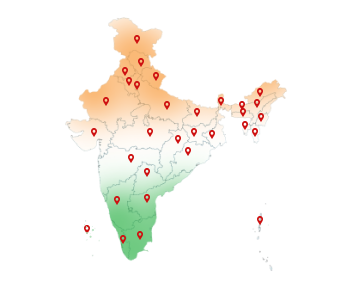14-Jul-2023
Why Class 3 DSC for E-Ticketing is important on IRCTC?
In the digital age, online ticket booking has become the go-to method for many travelers, offering convenience and efficiency. It is important to make sure online train ticket bookings through IRCTC are secure and authentic.
This is where Class 3 Digital Signature Certificates (DSCs) play a vital role. Here, we will discuss the importance of class 3 digital signature for e-ticketing on IRCTC website. They improve security and make booking easier for passengers.
What is a Digital Signature Certificate?
A DSC is an electronic form of identification, similar to a physical signature. It ensures the integrity and authenticity of electronic documents, messages, or transactions. DSCs are given by CapricornCA and are used to confirm the identity of people or groups in digital communications.
Types of Digital Signature Certificates
DSC has various classes in the market. Class 1, Class 2, and Class 3 are the three classes of DSCs. Each type has varying levels of security and validation. Moreover, class 3 DSCs offer top security and are commonly used for valuable financial tasks or when strong authentication is needed.
Importance of Class 3 DSC for IRCTC E-Ticketing
1) Ensuring Secure Online
Transactions Class 3 DSC offer enhanced security measures that are crucial when conducting online transactions on IRCTC. With a Class 3 DSC, passengers can ensure their ticket booking is safe from unauthorized access and tampering.
2) Verification of Identity
A CA like Capricorn rigorously verifies the individual's identity to obtain a Class 3 DSC. This process verifies the identity of the person using IRCTC and booking e-tickets. It helps to prevent identity theft and fraud by ensuring that only authorized users are accessing the system.
3) Mitigating Risks and Fraudulent Activities
Using Class 3 DSC deters fraudsters by greatly reducing the chance of unauthorized access, data tampering, or forgery. This instills confidence in passengers while booking tickets online and contributes to a more secure digital environment.
How Class 3 DSC Works on IRCTC
When booking train tickets on IRCTC, users can opt for Class 3 DSC to secure their transactions. To obtain a digital signature for IRCTC, users need to submit their identity and address proof to a Certifying Authority. The Certifying Authority verifies the information provided and issues the DSC. Once the user has the DSC, they can digitally sign their transactions on IRCTC, ensuring the integrity of the data exchanged.
Benefits of Class 3 DSC
For IRCTC Users
1) Enhanced Security
Class 3 DSC ensures that the user's personal and financial information remains secure during online transactions, reducing the risk of data breaches or identity theft.
2) Streamlined Process
With a Class 3 DSC, users can avoid the need for repetitive authentication steps during ticket booking, making the process faster and more efficient.
3) Reliable Authentication
Class 3 DSC creates legally recognized digital signatures that provide strong evidence of the user's intent and agreement.
4) Non-repudiation
It prevents users from denying their involvement in a transaction since their digital signature acts as proof of their consent.
For IRCTC Platform
1) Fraud Prevention
By implementing Class 3 DSC, IRCTC can mitigate the risk of fraudulent transactions, ensuring a secure environment for users.
2) Compliance with Regulatory Standards
It aligns with legal and regulatory requirements, ensuring that IRCTC operates in accordance with the prescribed guidelines.
3) Improved User Trust
When users notice IRCTC using DSC, they feel more secure and trust the platform more, which makes them happier.
Conclusion
In the realm of online ticket booking, security and trust are paramount. The utilization of digital signature for IRCTC not only enhances security but also simplifies the booking process for passengers. With a Class 3 DSC, travelers can easily book tickets, have better protection against fraud, and comply with Indian regulations.


